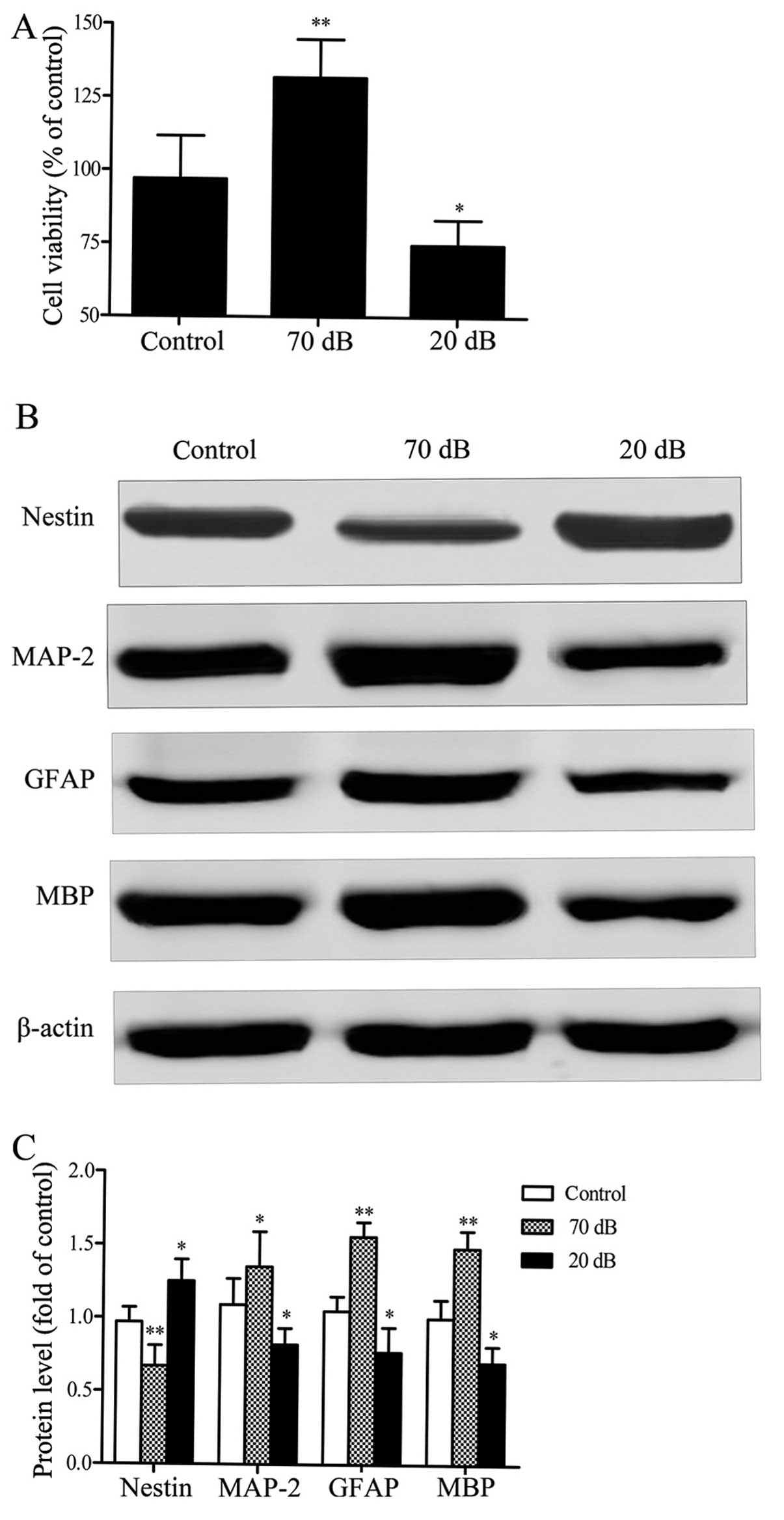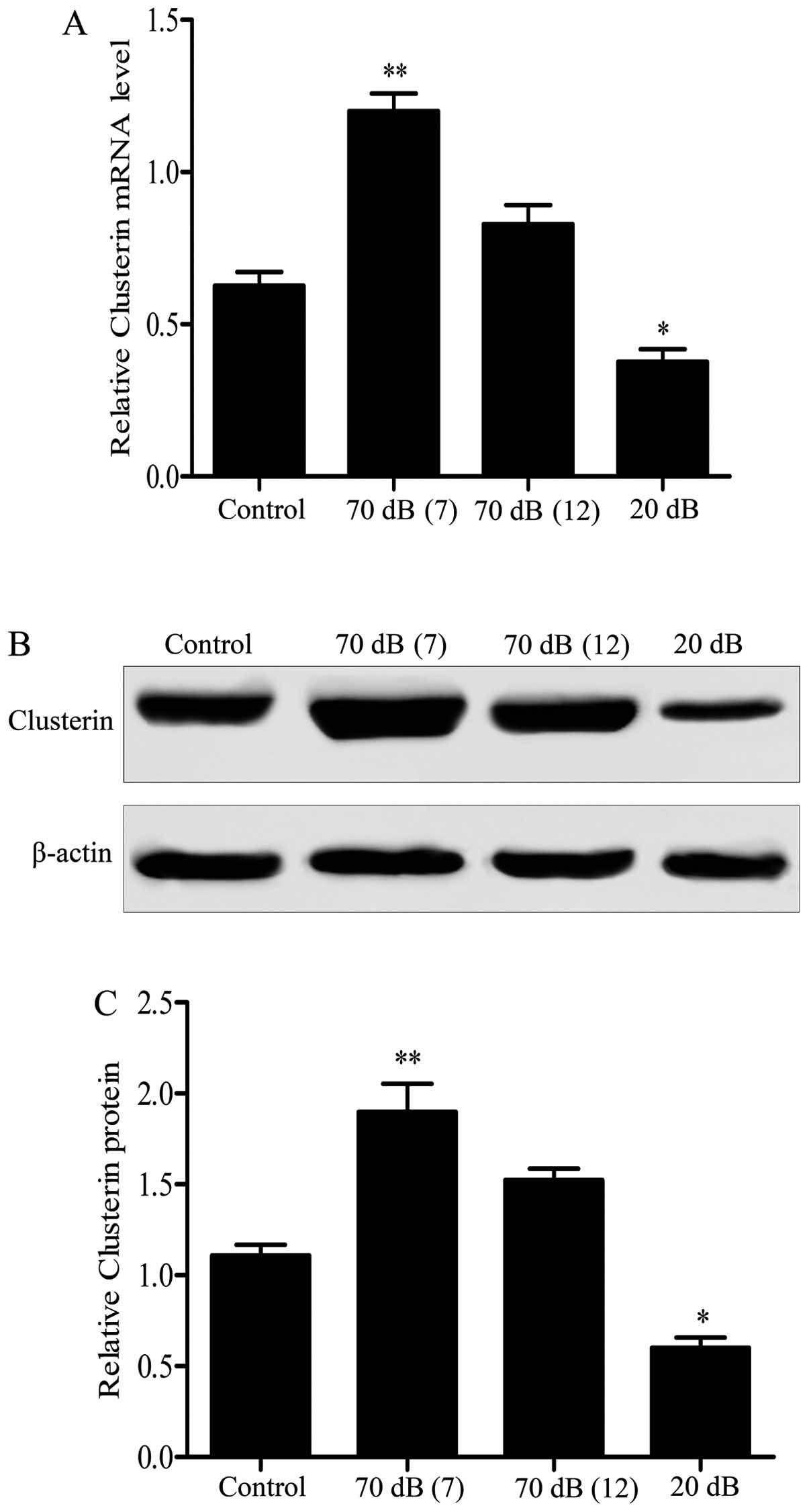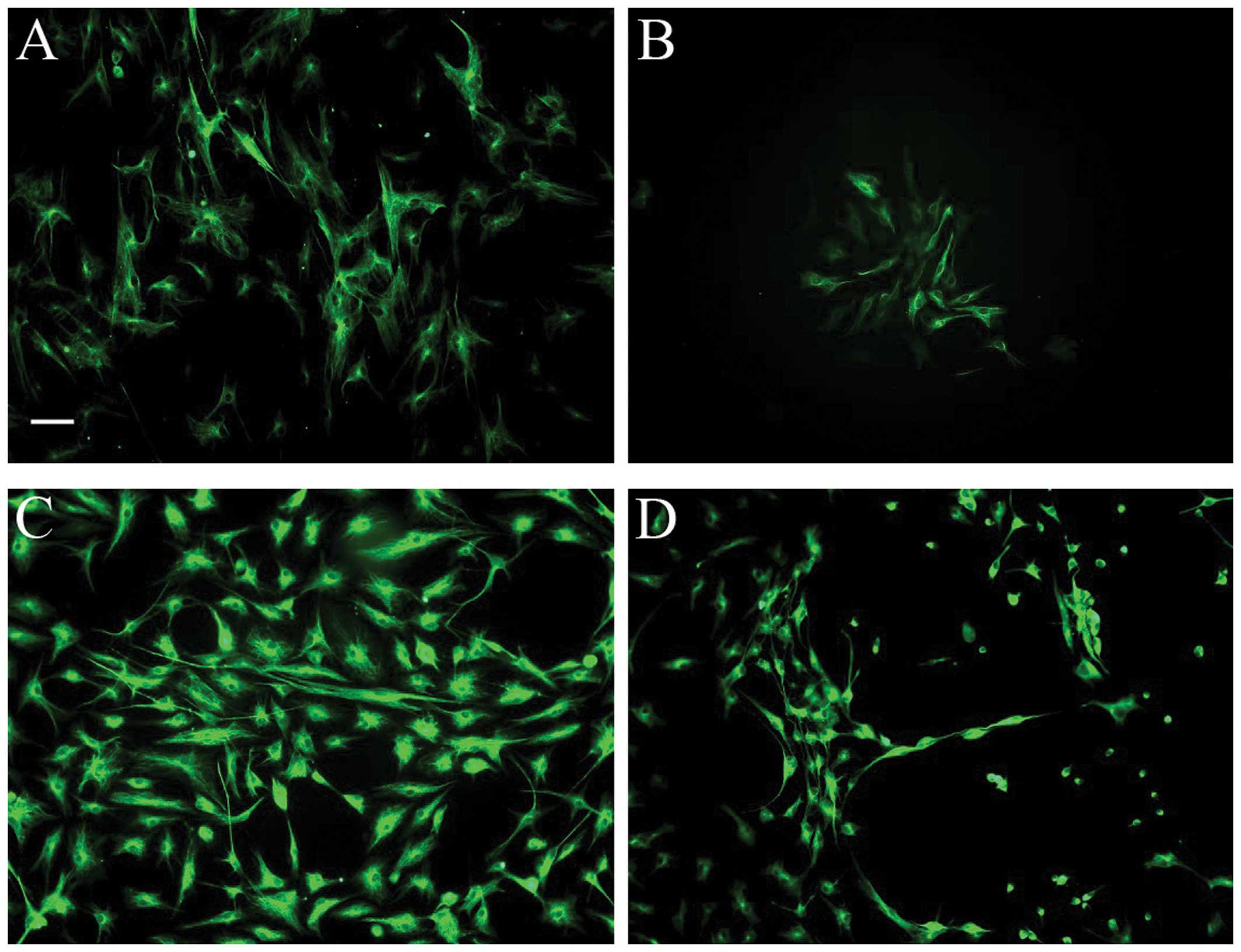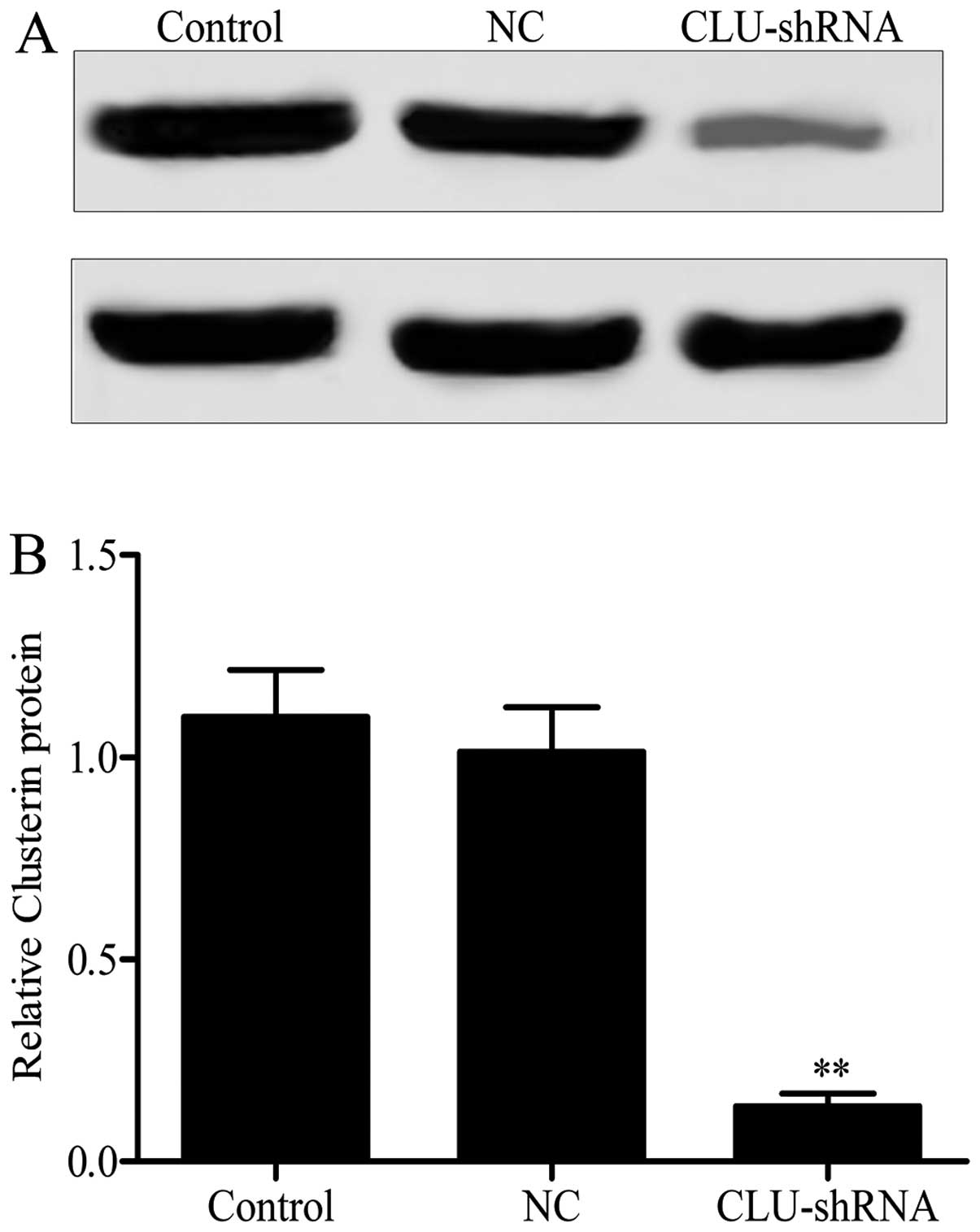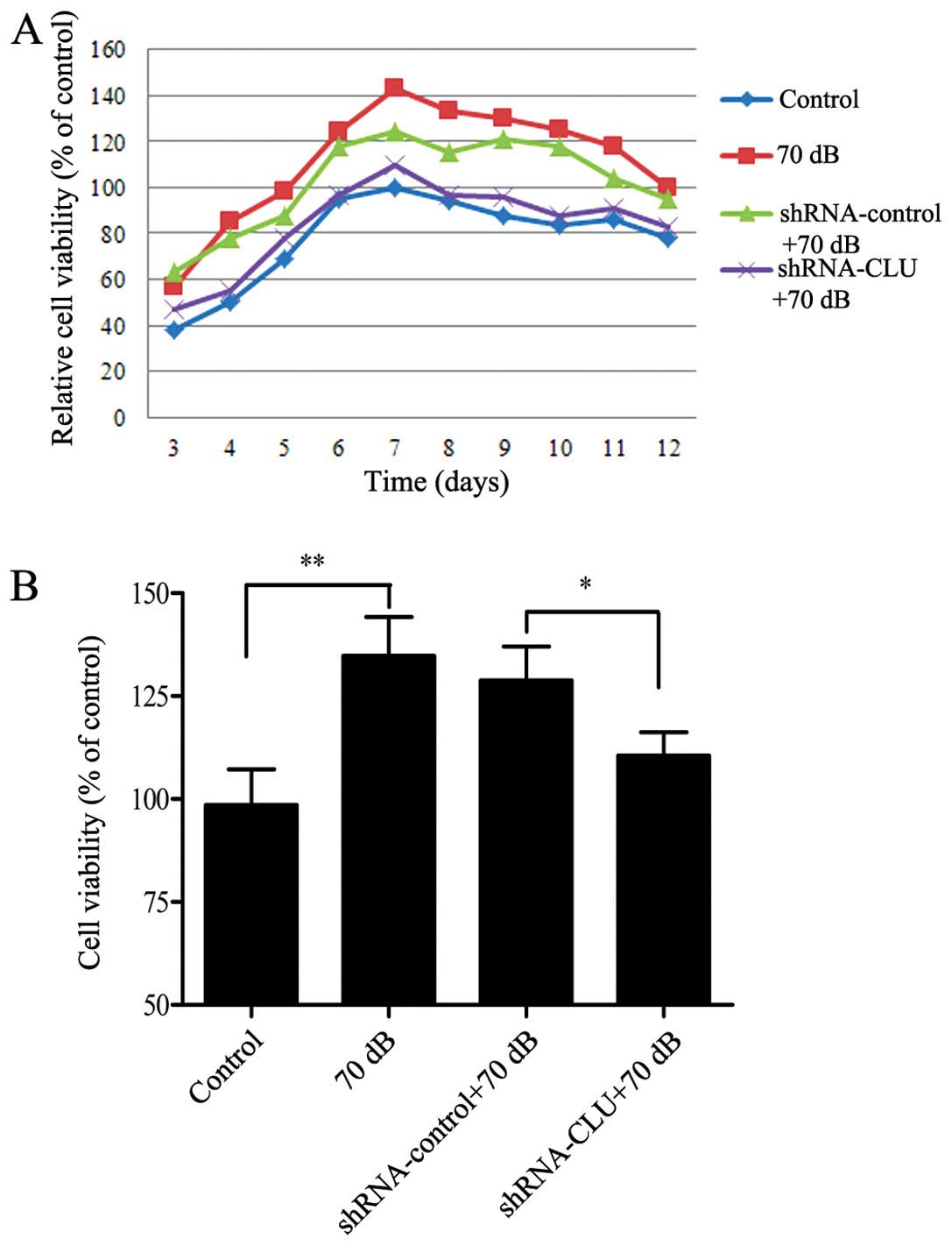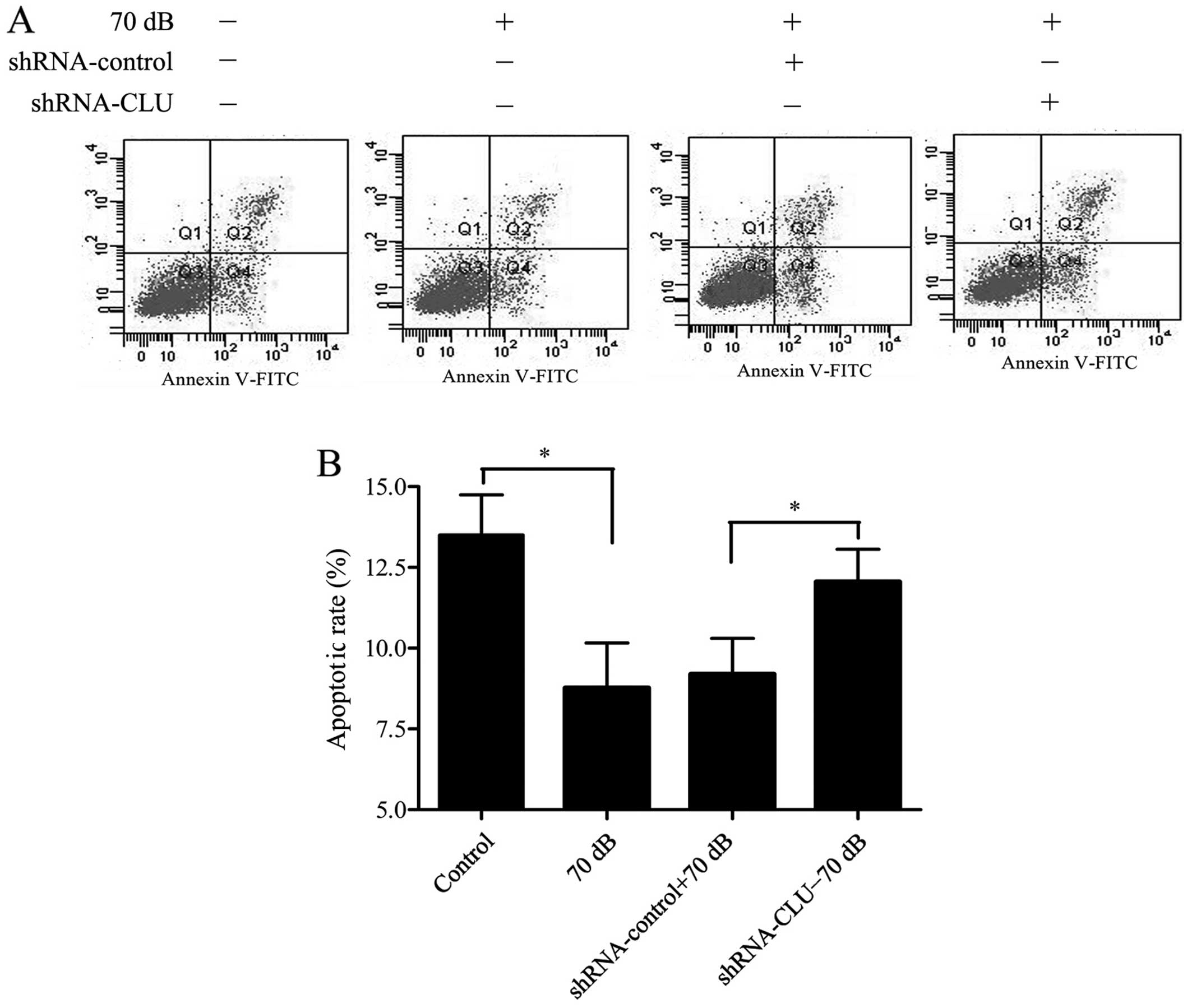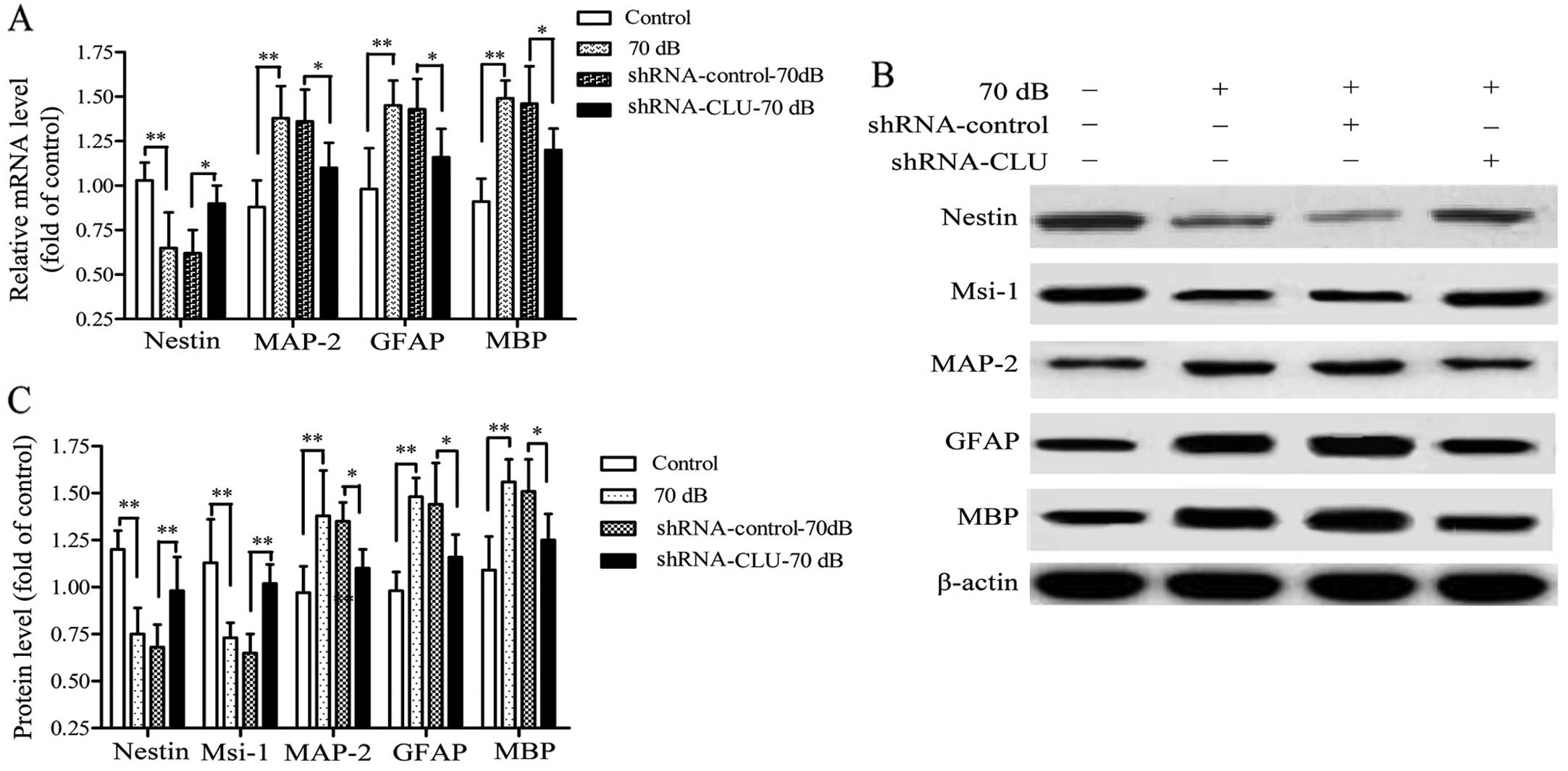|
1
|
Willott JF and Bross L: Effects of
prolonged exposure to an augmented acoustic environment on the
auditory system of middle-aged C57BL/6J mice: cochlear and central
histology and sex differences. J Comp Neurol. 472:358–370. 2004.
View Article : Google Scholar : PubMed/NCBI
|
|
2
|
Willott JF, Bross LS and McFadden S:
Ameliorative effects of exposing DBA/2J mice to an augmented
acoustic environment on histological changes in the cochlea and
anteroventral cochlear nucleus. J Assoc Res Otolaryngol. 6:234–243.
2005. View Article : Google Scholar : PubMed/NCBI
|
|
3
|
Wobus AM and Boheler KR: Embryonic stem
cells: prospects for developmental biology and cell therapy.
Physiol Rev. 85:635–678. 2005. View Article : Google Scholar : PubMed/NCBI
|
|
4
|
Lumelsky N, Blondel O, Laeng P, et al:
Differentiation of embryonic stem cells to insulin-secreting
structures similar to pancreatic islets. Science. 292:1389–1394.
2001. View Article : Google Scholar : PubMed/NCBI
|
|
5
|
Assady S, Maor G, Amit M, et al: Insulin
production by human embryonic stem cells. Diabetes. 50:1691–1697.
2001. View Article : Google Scholar : PubMed/NCBI
|
|
6
|
Sohur US, Emsley JG, Mitchell BD and
Macklis JD: Adult neurogenesis and cellular brain repair with
neural progenitors, precursors and stem cells. Philos Trans R Soc
Lond B Biol Sci. 361:1477–1497. 2006. View Article : Google Scholar : PubMed/NCBI
|
|
7
|
Kim JH, Auerbach JM, Rodríguez-Gómez JA,
et al: Dopamine neurons derived from embryonic stem cells function
in an animal model of Parkinson’s disease. Nature. 418:50–56. 2002.
View Article : Google Scholar : PubMed/NCBI
|
|
8
|
Bissonnette CJ, Lyass L, Bhattacharyya BJ,
Belmadani A, Miller RJ and Kessler JA: The controlled generation of
functional basal forebrain cholinergic neurons from human embryonic
stem cells. Stem Cells. 29:802–811. 2011. View Article : Google Scholar : PubMed/NCBI
|
|
9
|
McDonald JW, Liu XZ, Qu Y, et al:
Transplanted embryonic stem cells survive, differentiate and
promote recovery in injured rat spinal cord. Nat Med. 5:1410–1412.
1999. View Article : Google Scholar : PubMed/NCBI
|
|
10
|
Li H, Liu H and Heller S: Pluripotent stem
cells from the adult mouse inner ear. Nat Med. 9:1293–1299. 2003.
View Article : Google Scholar : PubMed/NCBI
|
|
11
|
Xue T and Qiu JH: Multipotent neural stem
cells in neonate rat brain stem cochlea nucleus. Fifth
International Symposium on Healthy Aging ‘Is Aging a Disease?’
2010; Hong Kong. 2010
|
|
12
|
Chen Y, Qiu J, Chen F and Liu S: Migration
of neural precursor cells derived from olfactory bulb in cochlear
nucleus exposed to an augmented acoustic environment. Hear Res.
228:3–10. 2007. View Article : Google Scholar : PubMed/NCBI
|
|
13
|
Zhang PZ, Cao XS, Jiang XW, et al:
Acoustical stimulus changes the expression of stromal cell-derived
factor-1 in the spiral ganglion neurons of the rat cochlea.
Neurosci Lett. 561:140–145. 2014. View Article : Google Scholar : PubMed/NCBI
|
|
14
|
Zhan W, Cruickshanks KJ, Klein BE, et al:
Generational differences in the prevalence of hearing impairment in
older adults. Am J Epidemiol. 171:260–266. 2010. View Article : Google Scholar :
|
|
15
|
Kehat I, Kenyagin-Karsenti D, Snir M, et
al: Human embryonic stem cells can differentiate into myocytes with
structural and functional properties of cardiomyocytes. J Clin
Invest. 108:407–414. 2001. View Article : Google Scholar : PubMed/NCBI
|
|
16
|
Shannan B, Seifert M, Leskov K, et al:
Challenge and promise: roles for clusterin in pathogenesis,
progression and therapy of cancer. Cell Death Differ. 13:12–19.
2006. View Article : Google Scholar
|
|
17
|
Kim BM, Kim SY, Lee S, et al: Clusterin
induces differentiation of pancreatic duct cells into
insulin-secreting cells. Diabetologia. 49:311–320. 2006. View Article : Google Scholar : PubMed/NCBI
|
|
18
|
Shin YJ, Kang SW, Jeong SY, et al:
Clusterin enhances proliferation of primary astrocytes through
extracellular signal-regulated kinase activation. Neuroreport.
17:1871–1875. 2006. View Article : Google Scholar : PubMed/NCBI
|
|
19
|
Trougakos IP and Gonos ES:
Clusterin/apolipoprotein J in human aging and cancer. Int J Biochem
Cell Biol. 34:1430–1448. 2002. View Article : Google Scholar : PubMed/NCBI
|
|
20
|
Shannan B, Seifert M, Boothman DA, Tilgen
W and Reichrath J: Clusterin and DNA repair: a new function in
cancer for a key player in apoptosis and cell cycle control. J Mol
Histol. 37:183–188. 2006. View Article : Google Scholar : PubMed/NCBI
|
|
21
|
Okada N, Kawakita T, Mishima K, et al:
Clusterin promotes corneal epithelial cell growth through
upregulation of hepatocyte growth factor by mesenchymal cells in
vitro. Invest Ophthalmol Vis Sci. 52:2905–2910. 2011. View Article : Google Scholar : PubMed/NCBI
|
|
22
|
Fukuhara S, Tomita S, Nakatani T, et al:
G-CSF promotes bone marrow cells to migrate into infarcted mice
heart, and differentiate into cardiomyocytes. Cell Transplant.
13:741–748. 2004. View Article : Google Scholar
|
|
23
|
Nienaber CA, Petzsch M, Kleine HD, Eckard
H, Freund M and Ince H: Effects of granulocyte-colony-stimulating
factor on mobilization of bone-marrow-derived stem cells after
myocardial infarction in humans. Nat Clin Pract Cardiovasc Med.
3:S73–S77. 2006. View Article : Google Scholar : PubMed/NCBI
|
|
24
|
Sugaya K and Merchant S: How to approach
Alzheimer’s disease therapy using stem cell technologies. J
Alzheimers Dis. 15:241–254. 2008.PubMed/NCBI
|
|
25
|
Sugaya K, Kwak YD, Ohmitsu O, Marutle A,
Greig NH and Choumrina E: Practical issues in stem cell therapy for
Alzheimer’s disease. Curr Alzheimer Res. 4:370–377. 2007.
View Article : Google Scholar : PubMed/NCBI
|
|
26
|
Soldner F, Hockemeyer D, Beard C, et al:
Parkinson’s disease patient-derived induced pluripotent stem cells
free of viral reprogramming factors. Cell. 136:964–977. 2009.
View Article : Google Scholar : PubMed/NCBI
|
|
27
|
Morshead CM, Reynolds BA, Craig CG, et al:
Neural stem cells in the adult mammalian forebrain: a relatively
quiescent subpop-ulation of subependymal cells. Neuron.
13:1071–1082. 1994. View Article : Google Scholar : PubMed/NCBI
|
|
28
|
Lendahl U, Zimmerman LB and McKay RD: CNS
stem cells express a new class of intermediate filament protein.
Cell. 60:585–595. 1990. View Article : Google Scholar : PubMed/NCBI
|
|
29
|
Strojnik T, Røsland GV, Sakariassen PO,
Kavalar R and Lah T: Neural stem cell markers, nestin and musashi
proteins, in the progression of human glioma: correlation of nestin
with prognosis of patient survival. Surg Neurol. 68:133–144. 2007.
View Article : Google Scholar : PubMed/NCBI
|
|
30
|
Matus A: Neurofilament protein
phosphorylation - where, when and why. Trends Neurosci. 11:291–292.
1988. View Article : Google Scholar : PubMed/NCBI
|
|
31
|
Eng LF, Vanderhaeghen JJ, Bignami A and
Gerstl B: An acidic protein isolated from fibrous astrocytes. Brain
Res. 28:351–354. 1971. View Article : Google Scholar : PubMed/NCBI
|
|
32
|
Žurek J and Fedora M: The usefulness of
S100B, NSE, GFAP, NF-H, secretagogin and Hsp70 as a predictive
biomarker of outcome in children with traumatic brain injury. Acta
Neurochir (Wien). 154:93–103. 2012. View Article : Google Scholar
|















